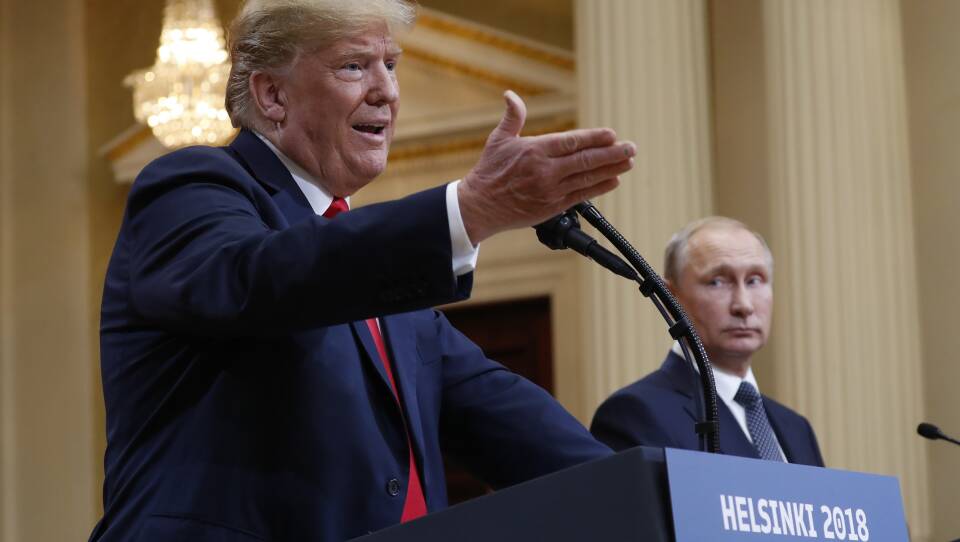At Monday’s press conference in Helsinki, President Trump faced a question about a shipment of Russian liquefied natural gas that was sent to Boston in January.
The question came from a Russian journalist who pointed out, through an interpreter, that Trump has been critical of a pipeline project that allows Germany to buy gas from Russia. Trump has said it makes Europe a hostage of Russia.
“You suggested that you could free Europe from this by supplying American LNG,” the Russian journalist said. He went on to question whether the United States could provide LNG or liquefied natural gas as an alternative. “As far as I know U.S. had to buy ... Russian gas for Boston.”
Yes, Russian liquefied natural gas was shipped into to Boston Harbor last winter. Trump didn't address the Boston shipment but insisted the U.S. has plenty of gas to export.
“The United States is much different than it was a number of years ago when we weren't able to extract what we can extract today,” Trump responded. “So today we're number one in the world at that. And I think we'll be out there competing very strongly.”
So, if we’re that good at extracting natural gas now, what’s with that shipment of LNG from Russia? And why was it allowed in spite of U.S. sanctions against Russia?
Carol Churchill is with Engie North America, which owns the Distrigas LNG terminal in Everett, where that giant tanker arrived on January 28.
“We took a shipment of LNG that loaded in the Isle of Grain,” she said. “The Isle of Grain is in the UK. Prior to us loading our cargo of LNG there, there had been Russian shipment of LNG that offloaded.”
So the shipment didn’t violate any sanctions, since it didn’t come directly from Russia. But, Churchill said, “in all probability there were Russian molecules of gas in the shipment that we loaded in the UK.”
In fact, another earlier shipment also probably had Russian LNG in it.
Stephen Leahy of the trade group the Northeast Gas Association said LNG shipments are crucial to help the region deal with peak heating demand during the coldest part of the winter.
“LNG has been used here for about 40 years. It's made a lot of sense for New England because we don't have underground storage, so LNG is our only local storage,” Leahy said.
Although Trump’s right that we are producing more natural gas, especially in the Marcellus Shale in Pennsylvania, Leahy said there’s not sufficient pipeline to get enough to New England.
“On the cold winter days the pipeline system is basically full, and so we need to supplement supplies with imported LNG,” he said.
And because of a federal law known as the Jones Act, tankers of LNG are prohibited from going from one U.S. port to another, so those shipments have to come from abroad. Most of our LNG imports actually come from Trinidad. But apparently Russian LNG sometimes gets in, through other places.
The Russian journalist’s question gets to the heart of a heated debate in New England. The natural gas industry points to the lack of adequate supply in the winter as a sign the region needs new, expanded pipelines in New England. Environmentalists argue against pipelines, saying LNG shipments are a better way to keep us warm on the coldest winter days, and that investments should instead be made in more renewable energy.





